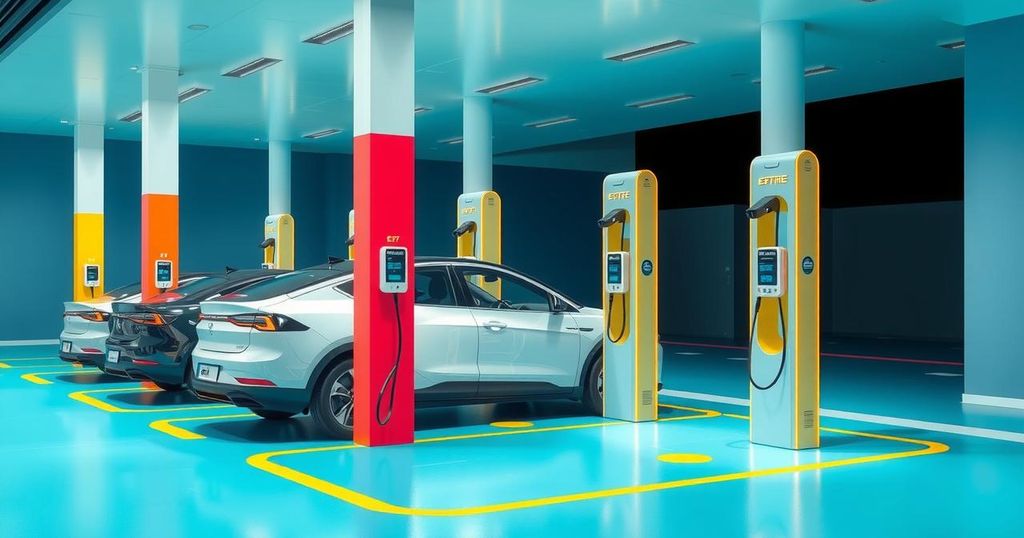BYD’s Five-Minute EV Charging Technology Challenges Tesla’s Market Leadership
Chinese automaker BYD has introduced a five-minute charging technology, increasing pressure on Tesla as it faces declining stock prices and investor concerns. Western automakers Audi and Alfa Romeo have hesitated to fully commit to electric futures, while Nissan has partnered with SK On for battery supply as it plans to increase U.S.-made EV production. The landscape hints at a transformative moment for consumer choice and EV market dynamics.
Recent advancements in electric vehicle (EV) technology reveal that Chinese automaker BYD has made significant strides with its new five-minute fast-charging system, threatening Tesla’s market presence. This development comes as investors express growing concern regarding Tesla’s capabilities in the competitive EV landscape. With BYD’s new Super e-Platform EVs due to launch at approximately $38,000, they will offer the ability to replenish around 250 miles of range in just five minutes, fundamentally changing the performance expectations surrounding EVs.
The market’s response to BYD’s announcement has been detrimental to Tesla, whose stock price has continued to decline. Investors are increasingly questioning Tesla’s future viability against rising competition, particularly in light of its aging model lineup and delayed innovations. The emergence of BYD’s technology highlights a broader trend indicating that the U.S. auto industry is lagging behind its Chinese counterparts, particularly in charging solutions and EV development.
Simultaneously, prominent Western automakers such as Audi and Alfa Romeo appear hesitant to fully commit to electric future timelines, with Audi recently stating a need to reassess its transition toward electric mobility. The company’s management has acknowledged that the shift to an all-electric lineup may take longer than initially anticipated. Alfa Romeo’s CEO confirmed the brand’s decision to continue manufacturing combustion engine vehicles alongside future electric models, deviating from their previous all-electric commitments.
In another significant move, Nissan has established a partnership with South Korean battery manufacturer SK On to supply nearly 100GWh of batteries for its upcoming U.S.-made EVs, scheduled for production at their Mississippi facility starting in 2028. This agreement will bolster Nissan’s efforts in electrification while also creating 1,700 jobs in the U.S. The partnership is viewed as a crucial step toward enhancing Nissan’s competitiveness in the evolving electric vehicle market.
The discussion surrounding the adoption of ultra-fast charging technology raises questions about consumer reception. The prospect of affordable EVs capable of charging in five minutes suggests a potential turning point for the industry. The broader implications of such advancements could reshape consumer attitudes toward EVs, even those manufactured by Chinese companies, based on performance and cost considerations.
The recent developments in electric vehicle technology signify a pivotal shift in the automotive landscape, particularly highlighting China’s advancements that challenge established players like Tesla. As BYD leads with its fast-charging innovation, Western automakers wrestle with commitments to an electric future. Nissan’s strategic partnerships further underscore the importance of adapting to the rapidly evolving market dynamics. The future of EV adoption hinges on advancements in technology and competitive pricing, raising questions about consumer preferences in this new era of electric mobility.
Original Source: insideevs.com




Post Comment